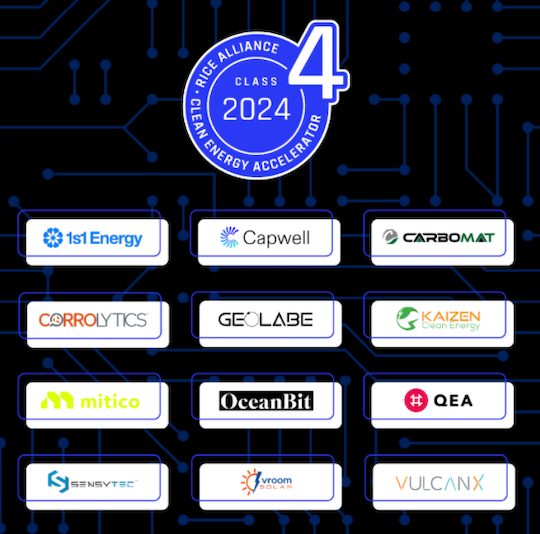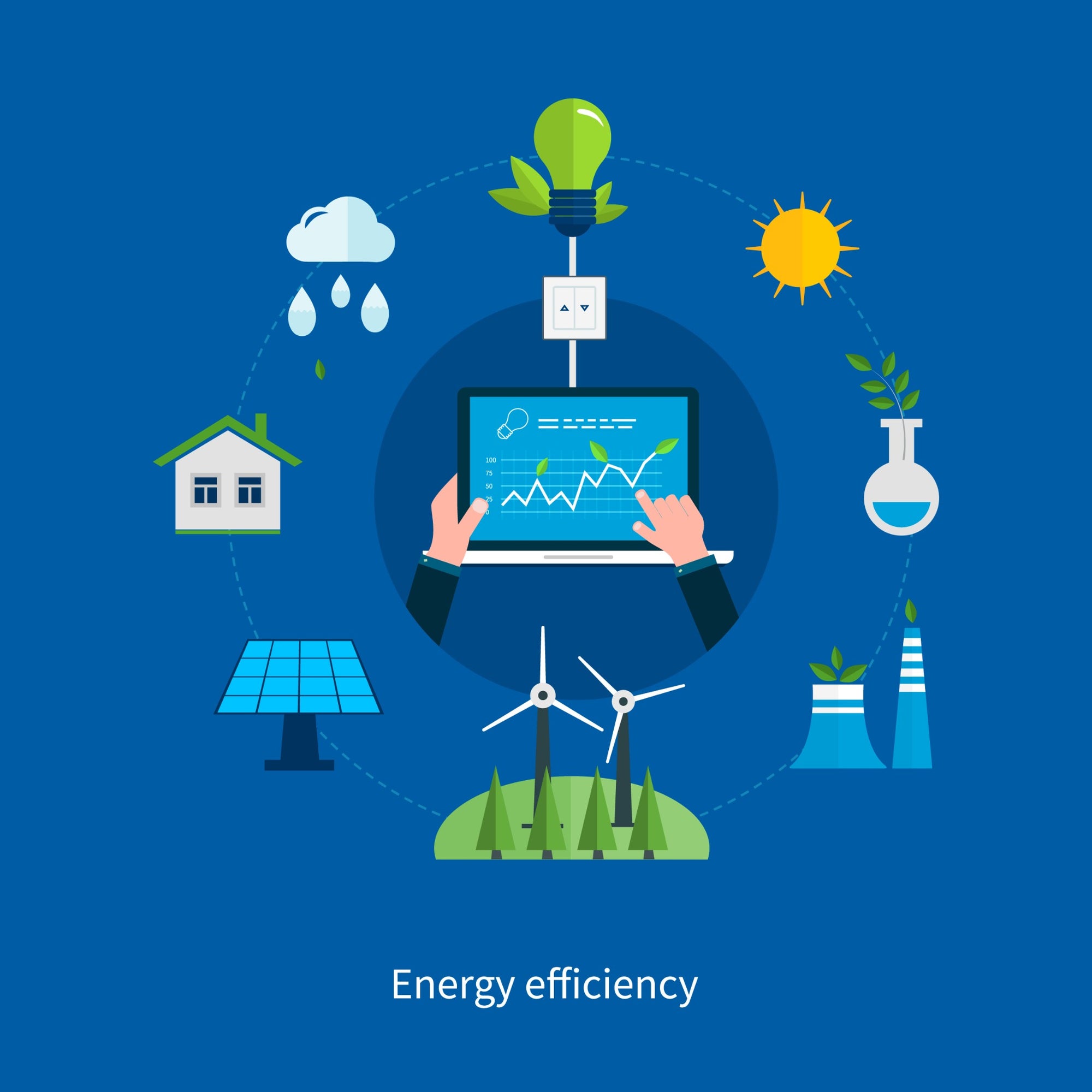Twelve energy startups from six states and two countries that are innovating in advanced materials, carbon management, digital tech, energy efficiencies, hydrogen and solar power and corrosion detection will participate in Class 4 of the Rice Alliance Clean Energy Accelerator.
The accelerator, hosted by Rice University’s Rice Alliance for Technology and Entrepreneurship, supports the success of emerging, tech-enabled ventures who are advancing decarbonization solutions and efficiency strategies that accelerate the transition to a clean energy economy.
As Houston’s preeminent energy startup accelerator, Rice Alliance’s program offers an open door to the region’s energy ecosystem for ventures from around the world and puts them through a rigorous curriculum to bolster their fundraising efforts, prepare them for accelerated adoption into the marketplace and expand their connections for potential pilots, partnerships and sales, said Kerri Smith, executive director of the Rice Alliance Clean Energy Accelerator.

Since its launch, the Clean Energy Accelerator has supported 43 ventures across three classes that have raised more than $166 million in funding, identified and launched pilots, met investors, created jobs and seen many of the ventures relocated to Houston.
Class 4 startups include:
1s1 Energy develops electrolyzers with boron-based materials so utilities and heavy industry can produce low-cost green hydrogen to decarbonize existing and future businesses.
Capwell provides a cost-effective, modular and easily transportable system that eliminates methane emissions from wells for state governments and oil and gas companies.
CarboMat provides a clean technology that produces low-cost, sustainable and mid-tier grade carbon fibers at a 60% reduced production cost and 50% reduced GHG emissions to composite manufacturers in sports, recreation, marine and automotive industries who require large volumes of inexpensive carbon fibers for production of commodity grade products.
Corrolytics offers cutting-edge technology that detects corrosion on site and in near real time, providing accurate insights into microbial corrosion and general corrosion.
Geolabe provides a state-of-the-art, scalable, economical and fully automated methane monitoring system that helps organizations measure their environmental performance and introduce and prioritize remedial actions.
Kaizen provides hydrogen-based microgrids that enable fleet electrification at sites that are grid constrained or off grid. The solutions emit no local emissions and reduce global emissions.
Mitico offers state-of-the-art services and equipment to capture carbon dioxide (CO2) with a patent-pending granulated metal carbonate sorption technology that captures over 95% of the CO2 emitted from post-combustion point sources (flue gases).
OceanBit provides ocean thermal energy technologies and power plants that deliver abundant, affordable, baseload power to utilities and companies who need a firm, dispatchable and 24/7 carbon-free source of electricity.
QEA Tech provides detailed building envelope energy audits using drones, thermography and proprietary artificial intelligence-based software.
Sensytec offers patented sensors, delivering real-time, accurate material performance data of concrete and advanced building materials.
Vroom Solar provides Smart Solar Management technology that optimizes solar and optional AC power differently at a lower cost and smaller footprint for solar customers who need affordable, efficient and user-friendly power anywhere.
VulcanX provides hydrogen and solid carbon to gas utilities, steel manufacturers and ammonia producers who require low-cost and low-emission hydrogen.
Class 4 will be led by the Rice Alliance’s Kerri Smith and Matt Peña and supported by four executives-in-residence (XiRs), including Tim Franklin-Hensler, John Jeffers, Ritu Sachdeva and Nick Tillmann. The XiRs bring their unique industry expertise to the program and facilitate customized mentoring, individualized strategy and growth plans and targeted introductions to corporate partners and investors.
The annual 10-week hybrid virtual/in-person program kicks off July 9. Startups will come to Houston three times over the course of the program and will be hosted at the Ion, Houston’s innovation hub in midtown powered by Rice, with the Rice Alliance leading programming.
The accelerator concludes with a Demo Day alongside the 21st Rice Alliance Energy Tech Venture Forum Sept. 12. Both the Demo Day and Energy Tech Venture Forum anchor the recently announced inaugural Energy and Climate Startup Week in Houston from Sept. 9-13.
Learn more about the Rice Alliance Clean Energy Accelerator at ricecleanenergy.org and follow the Rice Alliance on LinkedIn to stay connected with the companies’ progress.

